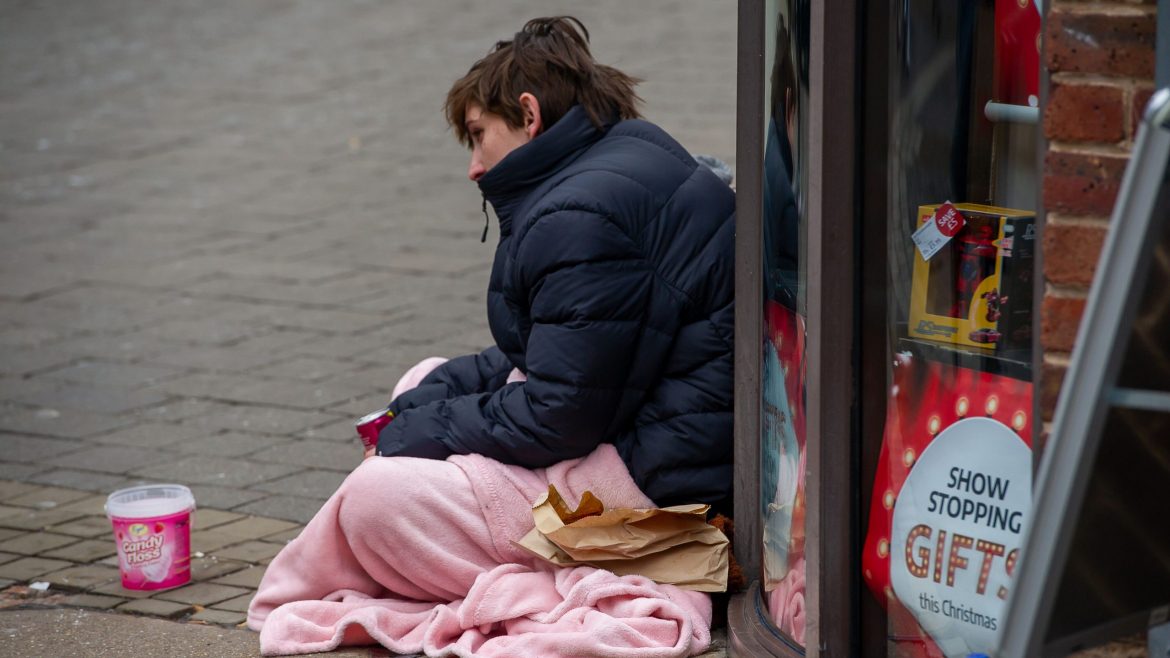Almost two-thirds of homeless Londoners in temporary accommodation are women, in part due to an increase in domestic violence since 2020.
According to an analysis by London councils, 42,000 women are in temporary accommodation in London compared to 21,700 male adults.
Kingston currently has around 900 people living in temporary accommodation and at the end of 2021 had 0.54 households per 1000 assessed as homeless, according to the Office of National Statistics (ONS).
Kingston councillor Emily Davey said that there were two aspects to why women are more likely to be in temporary accommodation: domestic violence and single parenthood.
“We have had an increase of domestic violence in some months, when you look at the stats there are more women approaching the council,” Davey said.
The number of household members seeking temporary accommodation in England because of domestic violence in the three months from July-September 2021, the most recent data available, rose to 550 from 410 in the same period in 2020.
ONS data showed 1,520 household members sought temporary accommodation in the first nine months of 2021, compared to 960 in the same period the previous year, representing a 58 per cent increase.
Davey, the portfolio holder for housing, said: “We can’t delay this [money and help to protect women]… mainly women are fleeing domestic violence. We need to get there early so women don’t have to endure violence, make sure the women are safe, and ensure they don’t have to leave their homes,” she said.
Due to the increase in domestic violence, Kingston council committed a further £217,000 towards the issue and to help victims in their 2022 budget.
Liberal Democrat councillor Davey said: “This is one of the reasons in our (local Liberal Democrat) budget why we wanted to increase spending on protecting young women and girls from violence.”
Women with dependent children
Alongside domestic violence, Davey said another reason why so many women in London are in temporary accommodation was due to women typically having dependent children, which makes them a ‘priority need’ to the council.
In London, 39 per cent of homeless households in temporary accommodation are single mothers. This is higher than the national figure from July-September 2021 of 16 per cent of single parents in temporary accommodation. However, the national figure for single male parents was 2 per cent.
Both single parents and domestic violence victims are classed by local authorities as ‘priority need’, which means they are described as statutory homeless as the local council owe a duty to them.
Other aspects behind the homelessness of women in London include the housing affordability in London and the number of households relying on Universal Credit.
Councillor Darren Rodwell, the executive member of housing & planning for London councils, said: “Women’s homelessness is too often overlooked. We’re hugely concerned by the number of women becoming homeless and requiring temporary accommodation.”
Help in Kingston
In December 2021, Kingston council launched its Homelessness and Rough sleeping five-year strategy, which focuses on those with complex lives and early intervention.
Councillor Davey explained that the complex lives project focuses specifically on rough sleepers as every person who lands themselves on the streets has a very different lived experience.
“Putting a roof over someone’s head is just the beginning, going out, getting a job, getting food to eat is a longer problem, “she said.
The scheme focuses on tackling multiple types of homelessness, from rough sleeping a visible form of homelessness to sofa surfing which is a form of hidden homelessness.
Davey said: “Kingston has a very diverse community, and we can help some easily and some need more help.”
Intervention can be very different for each homeless household or person. Davey pointed out that some households just need help with a deposit, yet some people need more intensive support.
As part of the strategy, the council are working with multiple independent charities such as Kingston Churches Against Homelessness (KCAH) and SPEAR.
Chief executive of KCAH Aileen Almond said: “People who are really entrenched rough sleepers may have complex needs, you can’t just send them off to a travel lodge and go ‘off you go’, we have to provide them with more support.”
KCAH was founded 30 years ago and offers a range of services to support single homeless people from food vouchers to befriending calls.
“The challenge in Kingston now is there are still rough sleepers and there is concern of what the impact of the cost of living crisis will have this year,” Almond said.
Political Editor





